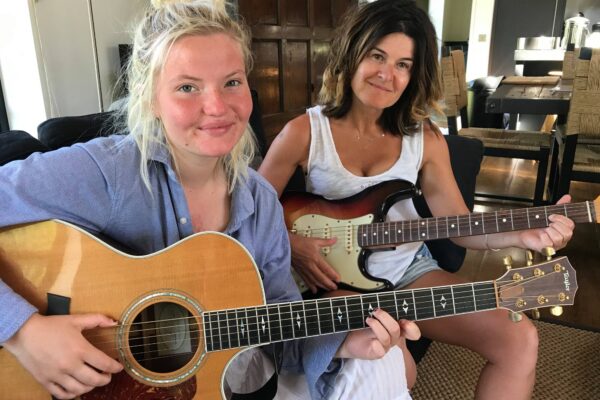
Become a Better Guitarist
Improve Your Guitar-Playing Skills: The Fastest Way to Become a Better Guitarist
For many aspiring musicians, the guitar is the instrument of choice. Its versatility, range, and expressive potential make it a favorite among beginners and seasoned players alike. But how can you accelerate your progress and become a proficient guitarist in record time? Whether you’re strumming for the first time or looking to refine your skills, here are the most effective strategies to improve your guitar-playing swiftly and efficiently.
1. Set Clear, Achievable Goals
Before diving into practice, it’s essential to set clear and realistic goals. These goals should be specific, measurable, achievable, relevant, and time-bound (SMART). Instead of a vague goal like “get better at guitar,” aim for something concrete, such as “learn to play five new chords within two weeks” or “master the solo from ‘Hotel California’ by the end of the month.” Having defined objectives will keep you focused and motivated.
2. Consistent Practice: Quality Over Quantity
Consistency is key to improvement. It’s more effective to practice for a short period every day than to have occasional marathon sessions. Aim for at least 30 minutes of focused practice daily. Ensure that this time is spent efficiently, with a balance of warm-ups, scales, chord changes, and learning new pieces. Utilize a metronome to improve your timing and rhythm, and always strive for precision over speed.
3. Master the Basics
Even if you are an intermediate or advanced player, revisiting the basics can provide substantial benefits. Ensure your fundamental skills are solid, including chord transitions, strumming patterns, and finger placement. Developing a strong foundation will make advanced techniques easier to learn and execute.
4. Use Online Resources and Apps
The digital age offers a plethora of resources for guitar learners. Websites like Ultimate Guitar and JustinGuitar provide extensive libraries of songs, lessons, and tutorials. Apps such as Fender Play, Yousician, and GuitarTuna offer interactive lessons and real-time feedback. Leveraging these tools can enhance your practice sessions and provide structure to your learning.
5. Learn Songs You Love
Playing songs you enjoy can significantly boost your enthusiasm and commitment. Choose pieces that match your current skill level but also challenge you slightly. This approach ensures that practice remains enjoyable and rewarding. As you master each song, gradually increase the difficulty to push your limits.
6. Understand Music Theory
While it may seem daunting, learning basic music theory is incredibly beneficial. Understanding scales, modes, chord construction, and progressions will enable you to improvise and compose your own music. It also makes it easier to learn and memorize new songs. Start with the basics and gradually build your knowledge.
7. Practice Ear Training
Developing a good ear is crucial for any musician. Ear training involves recognizing pitches, intervals, chords, and rhythms by ear. This skill allows you to play music by ear and improves your overall musicality. Use ear training apps or online exercises to practice this skill regularly.
8. Record and Review Your Playing
Recording yourself while playing can provide valuable insights. Listening to your recordings allows you to identify areas for improvement that you might not notice while playing. It also helps track your progress over time, which can be highly motivating.
9. Take Lessons
While self-teaching is possible, having a mentor can accelerate your progress. A good teacher can provide personalized guidance, correct your technique, and introduce you to new concepts and styles. If in-person lessons are not feasible, consider online lessons, which offer flexibility and access to a broader range of instructors.
10. Join a Community
Playing with others can significantly enhance your learning experience. Join a band, participate in jam sessions, or become part of a guitar club. Collaborating with other musicians exposes you to different playing styles and techniques, and provides valuable feedback. It also makes the learning process more enjoyable and social.
11. Stay Inspired and Motivated
Learning the guitar can be challenging, and it’s natural to encounter periods of frustration. To stay motivated, remind yourself of why you started playing in the first place. Listen to your favorite guitarists, attend live performances, and immerse yourself in music that inspires you. Setting small milestones and celebrating your achievements along the way can also keep your spirits high.
12. Experiment with Different Genres
Exploring various musical genres can broaden your playing skills and keep your practice sessions interesting. Each genre has its unique techniques and styles, from blues bends and slides to jazz chords and improvisation. Experimenting with different genres will make you a more versatile guitarist and expand your musical horizons.
Improving your guitar-playing skills rapidly requires dedication, structured practice, and a willingness to step out of your comfort zone. By setting clear goals, maintaining consistent practice, leveraging online resources, and staying inspired, you can make significant strides in your musical journey. Remember, every guitarist’s path is unique, so embrace the process and enjoy the music you create along the way.
Whether you’re strumming your first chord or shredding through a solo, these strategies will help you become a better guitarist and a more accomplished musician. So pick up your guitar, start practicing, and let your musical journey flourish.







